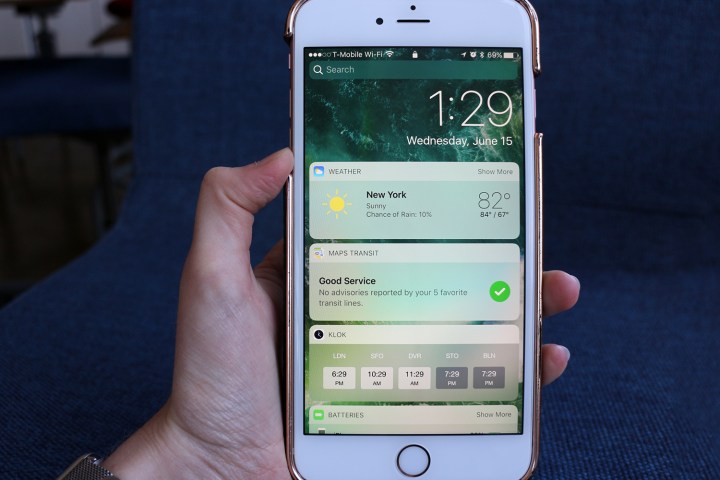
The kernel is the core of the operating system — it controls software requests and helps process them to instruct the device’s hardware. The kernel has always been encrypted in previous iOS versions, but with iOS 10’s developer preview it wasn’t, sparking surprise from technology researchers and security experts, according to MIT’s Technology Review.
It’s an unexpected move because it’s now much easier to search for security vulnerabilities, and it was unclear whether it was deliberate or an accident. The Cupertino company has now confirmed that it was done on purpose, and its reasoning is that “the kernel cache doesn’t contain any user info, and by un-encrypting it we’re able to optimize the operating system’s performance without compromising security.”
Encryption and Apple have been one of the headline-grabbing topics of 2016. It all began with two terrorists in San Bernardino who killed 14 people in December 2015. One of the shooters left behind a locked iPhone, which the FBI couldn’t access. The bureau asked Apple for help, and while the company initially complied, the FBI later got a judge to issue a court order demanding Apple to create a special tool that would offer backdoor access into the iPhone.
Apple rejected the order, saying that if such a tool fell in the wrong hands, its customers’ security and privacy would be at risk. The FBI eventually dropped the case, and a separate New York one, after it found a way to break into the respective devices. Since then, the U.S. Senate has been drafting encryption legislation and there has been more and more discussion about law enforcement dealing with locked devices as encryption is becoming a widespread standard feature on smartphones and in messaging apps like WhatsApp.
Producing a non-encrypted kernel could mean that Apple is beginning to encourage developers and users to report more bugs in its software — Apple’s response only mentions improvements designed to optimize iOS’ performance. At the same time, however, opening up the kernel also makes it easier for more people to take a look — and possibly find vulnerabilities or weaknesses in the operating system.
Apple did not respond to our request for comment.
Editors' Recommendations
- Are you having iPhone alarm problems? A fix is coming soon
- This one Apple Fitness feature completely changed how I exercise
- We finally know when Apple will announce its 2024 iPads
- An Apple insider just revealed how iOS 18’s AI features will work
- The most common Skype problems and how to fix them


